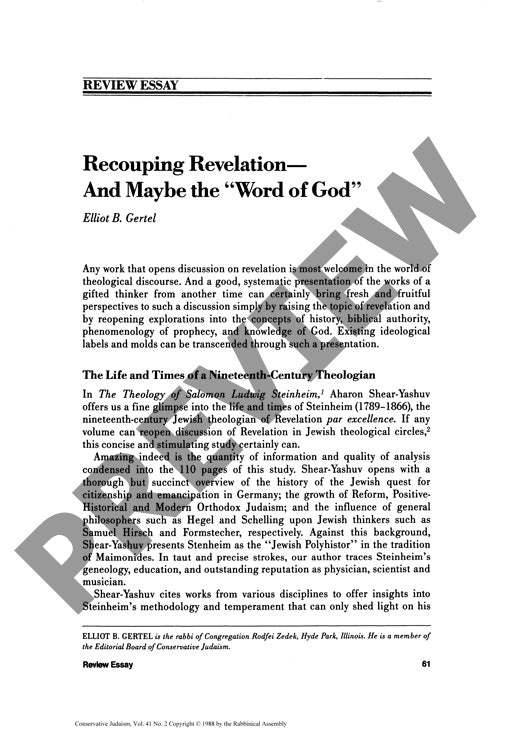Recouping Revelation and Maybe the Word
Couldn't load pickup availability
Solomon Ludwig Steinheim (1789-1866) challenged the dominant rationalism of nineteenth-century Jewish thought by positioning divine revelation as a form of genuine knowledge on par with empirical observation. Through extensive analysis of Aharon Shear-Yashuv's study, this essay explores how Steinheim, as a polyhistoric thinker, uniquely synthesized scientific methodology with theological inquiry. His threefold framework for revelation—encompassing divine communication, core biblical truths, and defense against rationalist reductions—offered a sophisticated alternative to both philosophical speculation and emotional experience. The methodology examines Steinheim's theological approach within German Jewish intellectual history, Reform Judaism, and contemporary Christian discourse. His emphasis on revelation as transcendent reality anticipated later phenomenological approaches while maintaining supernatural content, charting a distinctive course between fundamentalist literalism and modernist reductionism. While Steinheim's treatment of halakhic authority remains inadequately developed, his theological framework provides valuable resources for contemporary approaches to revelation that preserve divine transcendence while engaging critical scholarship.

More Information
-
Physical Description
-
Publication Information
Published
ISBN
-
Publication Credits
Elliot Gertel

